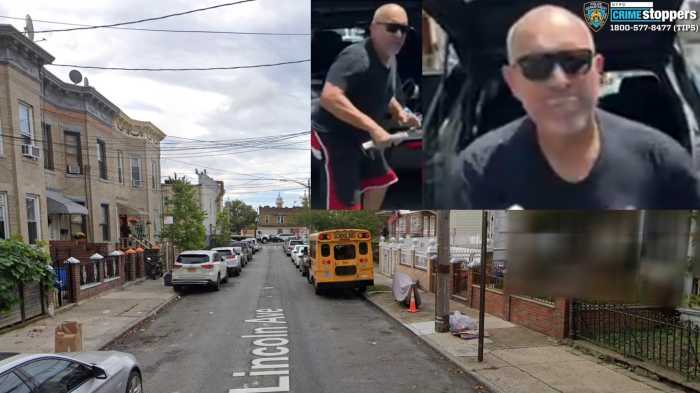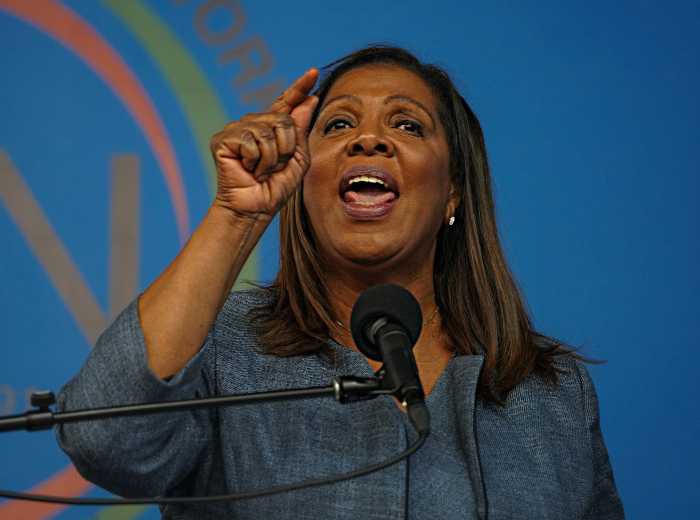BY KAITLYN MEADE | Over eleven years after the terrorist attacks toppled the Twin Towers and abruptly cut short more than 3,000 lives, the first money was paid to people suffering from the environmental fallout of 9/11.
On Jan. 29, 14 firefighters and one corrections officer with respiratory ailments were reportedly awarded payments between $10,000 and $1.5 million for a range of conditions and economic losses.
The names of the 15 awardees from the 9/11 Victim Compensation Fund have not been released.
“They’re maintaining strict confidentiality,” said Brice Peyre, a spokesperson for U.S. Rep. Carolyn Maloney. He said none of the awardees had cancer and that the highest payment went to a career fire fighter in his 40s, whose physical condition will prevent him from being able to work again.
It’s just the beginning for the Victim Compensation Fund in a long-in-coming promise made to first responders, sanitation workers and civilians by the Zadroga Act to provide healthcare or compensation for physical injuries stemming from exposure to toxic substances after the terrorist attacks on 9/11.
The first payment will only be ten percent of the awarded amount, with the rest distributed over time by the end of 2015.
So far, only a few hundred with reported health problems from 9/11 have been able to complete the paperwork for compensation
“They may not collect on 100 percent of that award depending on how many other people apply and how many receive awards,” said Peyre. They simply don’t know how many people will apply for a share of the $2.8 billion set aside by Congress for the fund.
“They want to make sure that everyone gets something,” he added.
To make the application more accessible, Maloney and U.S. Representative Jerrold Nadler met with the fund’s special master Sheila Birnbaum to hold an information session on the fund and its application process on Wed., Jan. 30.
The fund will remain open until October of 2016, but anyone seeking to apply for a condition that he or she knew of before Oct. 3, 2011 must submit a claim by Oct. 3 of this year.
And while many of the attendees took notes, many more voiced their main question: What’s taking so long?
“We just want a time frame,” said Al Montalvo, a volunteer who spent four months at the World Trade Center site “multitasking,” primarily as a paramedic. After volunteering Downtown, he said he was diagnosed with asthma, post traumatic stress disorder and eventually lung cancer.
He said he had applied to the fund “the minute it opened” and gotten a claim number on Aug. 14, 2012 but had not heard from them since then.
Over 16,000 people have registered with the V.C.F., reported Peyre, but only “several hundred” had completed applications, which were broken down into two parts: one to determine eligibility and one to claim monetary compensation.
“I think it’s too complex,” said Bob Schneck, a member of the W.T.C. Health Steering Committee and Community Board 1.
Schneck is eligible to apply to the fund for compensation and says he is currently studying the process. “I want to go through the process so that I can help other people with it.”
One thing he learned from applying is that it is difficult enough to make it worthwhile for most people to hire a lawyer, especially since attorneys can only take a ten percent cut of the award by law. The difficulty in applying may prevent a certain amount of fraud, a major concern for the fund’s earlier incarnation, but Schneck believes it is also the result of political infighting.
“No one would say that they wanted to abandon the people of New York,” he said, but added, “they allowed the legislation to pass and then put significant obstacles in front of it.”
For some first responders, however, it was too little, too late.
The event was overshadowed by the death of Zadroga Act campaigner and former New York Fire Department lieutenant Martin Fullam, 56, on Mon., Jan. 28. Fullam was a 9/11 first responder from his home in Annadale on Staten Island. In 2005, two years after the Victim Compensation Fund was initially closed, he was diagnosed with polymyositis, a rare lung disease.
Maloney praised him for his relentless campaign to get the V.C.F. reopened and mourned the fact that he did not live long enough to receive the award himself. Fullam was one of nine first responders who had died in the 72 hours before the forum.
Suzy Ballantyne of the New York state A.F.L.C.I.O., a federation of labor organizations, commented: “Those are the individuals who would have been here today.”




































